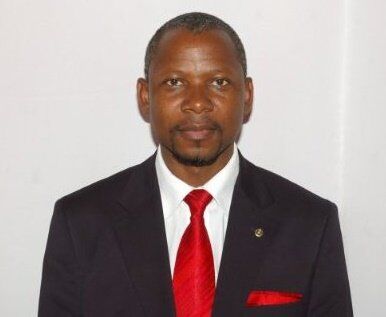
Malawi’s Attorney-General – the government’s legal adviser and representative in all court cases against the state – improperly acted for a multinational company embroiled in a long-running legal dispute, the Centre for Investigative Journalism Malawi (CIJM) can reveal.
The fact that AG Charles Mhango represented timber processing company Raiply Malawi in the High Court and Supreme Court of Appeal is seen as highlighting the powerful influence the company exercises in government circles.

The CIJM has uncovered evidence that as soon as the centre began asking questions about Raiply’s relationship with the AG’s office, the company applied to have its legal representation switched to a private law firm.
The CIJM was also unable to find records showing that the AG formally applied to represent the company, as per normal procedure.
A Malawian law professor at the University of Cape Town, Danwood Chirwa, said the AG’s job is to serve as the principal legal adviser to the government, a constitutional mandate that must be discharged “professionally and independently”.
He said that if an AG is compromised in the performance of this function, it is grounds for dismissal.
Chirwa noted that past Malawian AGs had often entangled themselves in similar cases due to “their misplaced enthusiasm, lack of appreciation of their job description and lack of professionalism, and the docility of the leadership of the prosecutorial agencies”.
Raiply Malawi, a subsidiary of the Kenyan group Rai, became a client of the AG’s office when the company was embroiled in a court battle with a group of independent sawmillers at Chikangawa, in the Viphya softwood plantation in Mzimba.
The case dates back to April 2016, when Raiply officials apprehended three women sawmillers, accusing them of encroaching in the company’s 20 000 hectare concession in the forest.
The Mzimba magistrate’s court acquitted the women of trespass and theft after determining that the contested area did not lie within the concession, but fell under the Malawi government through the department of forestry.
In 2016, after the women resumed logging and processing timber in the same area, an angry Raiply Malawi sought an injunction restraining them.
Court papers accessed by the CIJM show that the the two plaintiffs in the case against Sophilet Chirwa and others are the AG, acting for the forestry department, and Raiply Malawi.
A document signed by the AG on May 3 2016 gives notice that “the second plaintiff (Raiply) has appointed the Attorney-General as their legal practitioner”.
High Court judge Dingiswayo Madise granted the order.
When the matter went for a full hearing, the forestry department and Raiply were again represented by the AG, in the person of state advocate in the ministry of justice and constitutional affairs Apoche Itimu.
In a June 23 2017 ruling on civil cause number. 95 of 2016, Justice Madise ordered that the millers stop logging in the area. However, he also ordered the department and Raiply to release already harvested logs to the millers on payment of the relevant forestry fees.
The department and Raiply – once again represented by the the AG – launched an appeal.
On June 27 2017 the two sides settled by way of a consent order requiring the respondents to pay forestry fees upfront, as ordered by the court, while the appellants undertook to release the logs within an agreed period.
The CIJM has seen the consent order, which signed for the appellants only by the AG, represented by Itimu.
Contacted for comment, Raiply Malawi’s chief executive officer, Krishna Das, denied that the AG acted for the company.
Das refused to name the company’s lawyers saying that this was not acceptable in terms of Raiply’s values.
“We were duly represented by our lawyers in the case. I can’t comment any further,” he said.
However, the CIJM has seen a copy of a Malawi Supreme Court document signed on November 28 last year – after the CIJM started asking questions about the Viphya case – giving notice of a change of legal practitioners.
This states that Raiply “has appointed Messrs William Faulkner [of Lilongwe] to act for the second appellant [Raiply] in place of the Honourable Attorney General … who has acted hitherto.”
Attorney General Mhango did not respond to the CIJM’s queries about the issue over a five-week period.
But in an interview, Malawi Law Society president Khumbo Soko said the AG should have filed a notice of appointment before the case.
“Unless the AG did this, it would be proper to conclude that his office was representing the company,” said Soko.
CIJM could find no such notice filed by the AG.
This is not the first time a private company is alleged to have “captured” an institution of state in Malawi.
In 2016, an investor in Malawi accused agents of the Malawian state – including police and tax officials – of abusing their power to harass him during a bitter private wrangle with a former business associate over ownership of a multibillion-kwacha agribusiness.
Chandrashekar More, an Indian national, alleged that after the dispute erupted, he was arrested on frivolous charges and tortured in police custody. He was later deported
In a leaked communication, his India-based lawyer, claimed Malawian officials confessed to him that “the orders had come from above.
This story was supported by the Centre for Investigative Journalism Malawi (http://investigative-malawi.com) and the Organized Crime and Corruption Reporting Project (https://www.occrp.org/en), in association with the amaBhungane Centre for Investigative Journalism.














